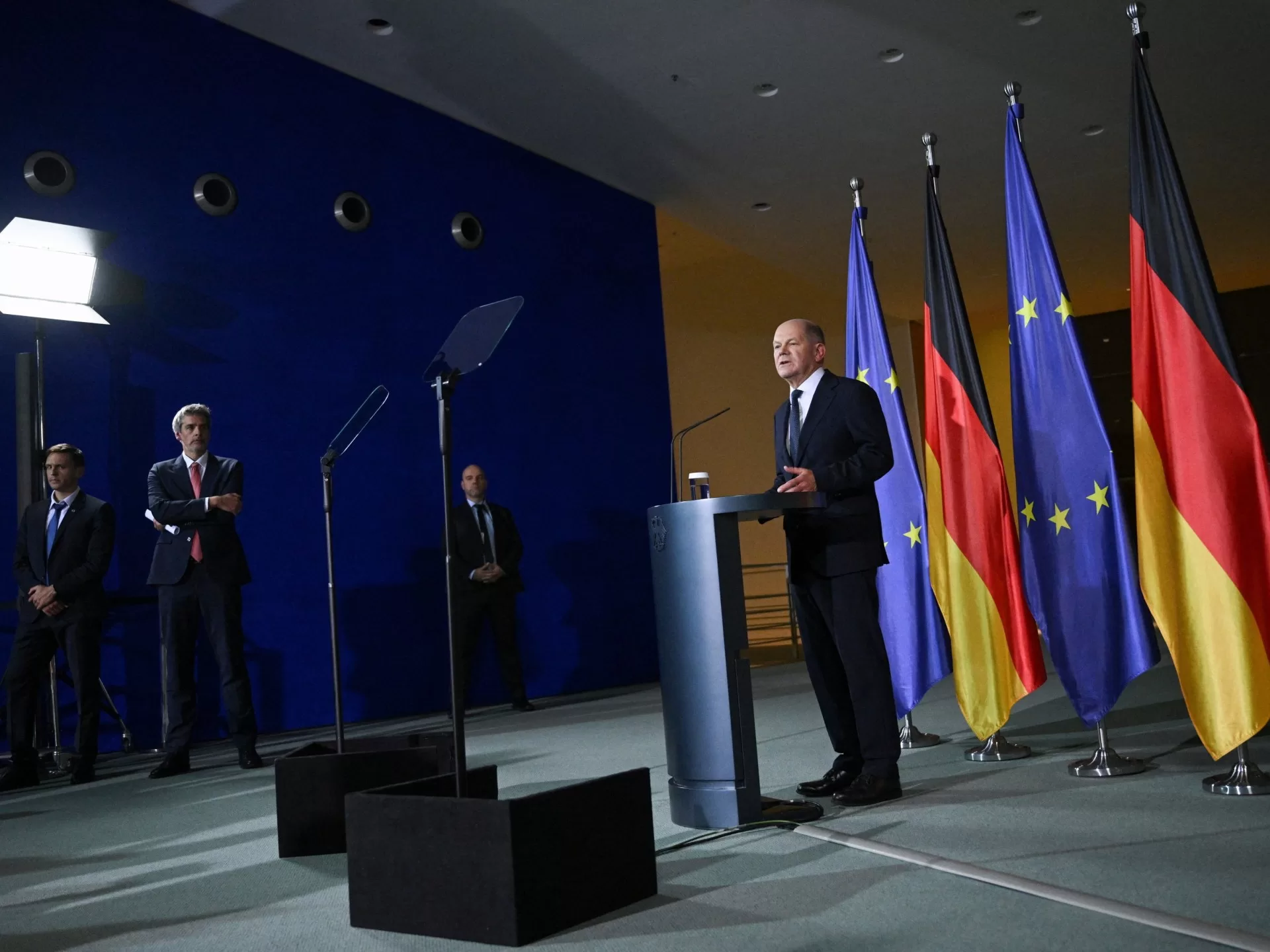Scholz will head a minority government with coalition partners, the Social Democrats and Greens, after firing his finance minister from the Free Democrats.
Germany’s ruling three-party coalition has collapsed after Chancellor Olaf Scholz fired his finance minister, paving the way for an early election and triggering political chaos in Europe’s largest economy.
After sacking his Finance Minister Christian Lindner of the Free Democrats (FDP) party on Wednesday, Scholz is now expected to head a minority government with his Social Democrats and the Greens.
The collapse of Scholz’s political alliance caps months of wrangling over budget policy and Germany’s economic direction, with the government’s popularity sinking and far-right and far-left political forces surging.
“We need a government that is able to act, that has the strength to make the necessary decisions for our country,” Scholz told reporters.
Scholz said he fired Lindner for his obstructive behaviour on budget disputes, accusing the minister of putting party before country and blocking legislation on spurious grounds.
Al Jazeera’s Bernard Smith, reporting from Berlin, said that in the last few weeks, the coalition formed by Scholz had become “increasingly strained”.
“It spectacularly imploded this evening essentially because Lindner wanted to cut taxes and cut benefits to try to improve Germany’s economy,” Smith said, predicting that Scholz is currently on course to lose the confidence vote called for January.
Now, the chancellor will have to rely on cobbled-together parliamentary majorities to pass legislation and his planned parliamentary vote on confidence in his government, which is scheduled for January 15, could trigger snap elections by the end of March.
More pressingly, Scholz said he would ask Friedrich Merz, leader of the opposition conservatives who are far ahead in polls, for support in passing the budget and boosting military spending. Merz is due to respond in a Thursday morning news conference.
Speaking after Scholz, Lindner said the chancellor had tried to strong-arm him into breaking a constitutionally enshrined spending limit, known as the debt brake, a move that Lindner, a fiscal hawk, refused to support.
“Olaf Scholz refuses to recognise that our country needs a new economic model,” Lindner told reporters. “Olaf Scholz has shown he doesn’t have the strength to give his country a new boost.”
Germany’s government crisis came just hours after the election of Donald Trump as US president, and as Europe scrambled to form a united response on issues from possible new US tariffs to Russia’s war in Ukraine and the future of the NATO alliance. It also came at a critical juncture for Germany, which is faced with a flatlining economy, ageing infrastructure and an unprepared military.
A political shake-up could increase growing frustration with Germany’s mainstream parties to the benefit of younger populist movements, including the anti-immigrant, far-right Alternative for Germany (AfD).
